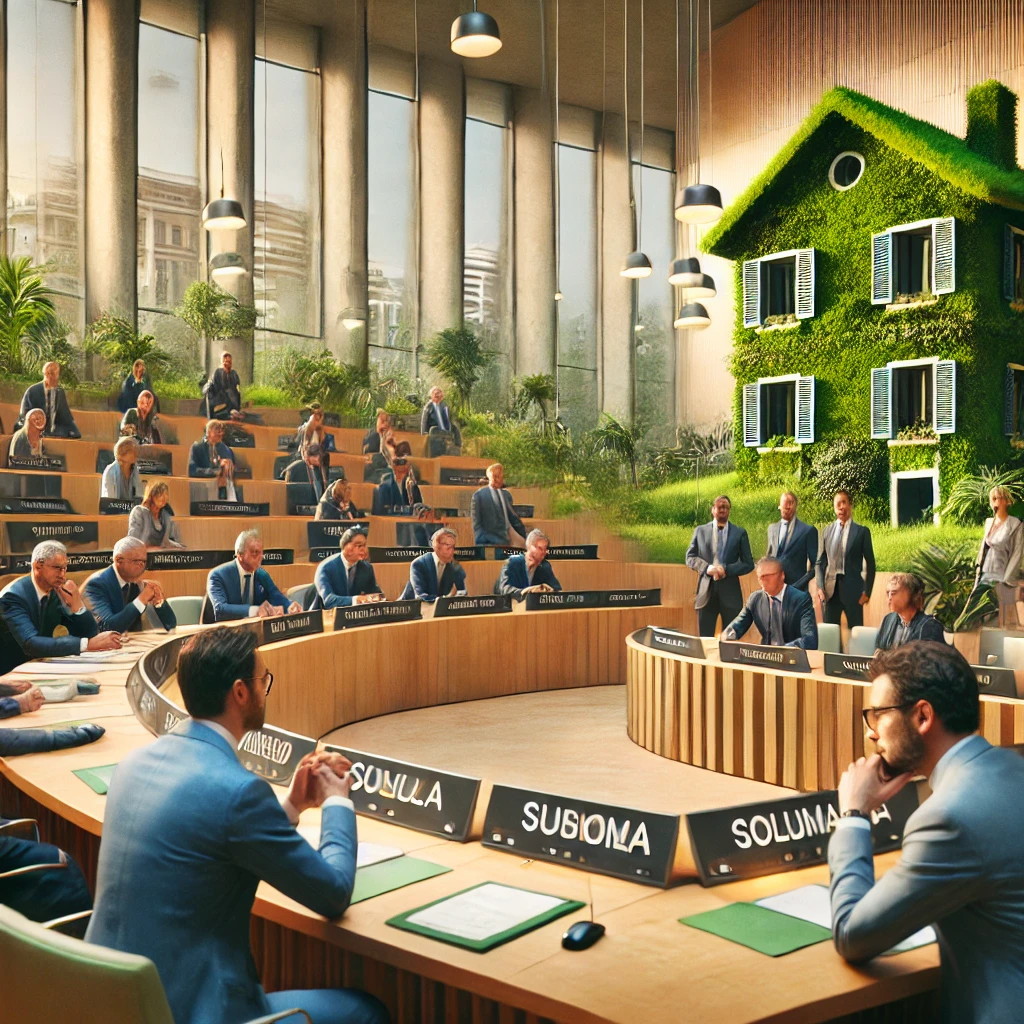Green case: Minister Pichetto Fratin: we need money and time, 2050 is the most realistic deadline.

Minister Pichetto Fratin announced that, despite Italy's negative vote, the directive on "green" buildings has still been adopted. What will happen now? "First of all, I want to emphasize that the government fully supports the goals of decarbonization. We actively advocate for these goals at climate conferences, including COP and G7 meetings, where we hold the presidency. We recognize that buildings are one of the main sources of CO2 emissions, and action is necessary. We will begin work on the National Building Renovation Plan, which is provided for by the European directive, but we will strive towards the ultimate goals set at the European level for 2050 regarding climate change."
What about the deadlines of 2030 and 2033, when significant results in reducing emissions, including from non-residential buildings, are expected to be achieved? "We will try to meet these goals, but despite the improvements in the directive's text, we must remain realistic. These targets seem quite challenging to us, one could even say that they are almost unattainable."
Is it more difficult than in other countries? "Absolutely. Italy has its own history and unique physical characteristics compared to other European countries. About 70% of the buildings in our country are over 70 years old; they are historical structures. Real estate is very widespread, and 80% of families own their homes, with the ownership structure being quite fragmented. Two-thirds of the buildings are located in mountainous and hilly regions, and we have 50,000 small villages."
Weren't these factors taken into account in the directive? "Apparently not. In the first version of the document, the situation was even worse. It was assumed that all buildings would be classified as class D. Do you know how many buildings are in a lower class in Italy?"Twenty million.
Nevertheless, the current directive includes certain exceptions, such as for historical buildings.
14 May 2025
13 May 2025
14 May 2025

Georgetti is wondering who will pay for all this work. Obviously, the treasury has no extra funds... "We have just come out of a rather unfortunate experience with the Superbonus 110%, which nearly led to the collapse of public finances. We spent 200 billion on adapting 500,000 buildings. Potentially, those that fall under the new directive number in the millions. We will do everything possible and appropriate within the framework of public finances."
What mechanisms do you plan to use? "We will offer tax incentives for high-income taxpayers, meaning we will provide a tax deduction with a yet-to-be-determined rate. For low-income individuals, a different system will be required, including direct subsidies from the government. Additionally, for public buildings, we can engage energy service companies (ESCOs) that finance the work and then retain the energy savings for a certain period. We can also use thermal service accounts from the Energy Management Service (GSE)."
With the Superbonus, many expensive but low-impact energy-saving initiatives were funded, including projects for second homes. "These are mistakes that need to be corrected. We must direct support to truly necessary things:"heat pumps,thermal insulation,double glazingand also onsolar panels"that provide significant savings."
Is there a possibility to return to the discussion of the directive text? "Within the EU, we will have a new commission and a new parliament. I hope for that."
Subscribe to the newsletters "L'Economia," such as "Whatever it Takes" by Federico Fubini, which focuses on the challenges facing the economy and markets in an unstable world, and "Europe Matters" by Francesca Basso and Viviana Mazza, where important events in Europe, the USA, and Italy are discussed. Don't miss the news from the world of science and technology in the "One More Thing" section by Massimo Sidere, which could change our lives more than we think.
Comment
Popular Offers

Subscribe to the newsletter from Hatamatata.com!
Subscribe to the newsletter from Hatamatata.com!
I agree to the processing of personal data and confidentiality rules of Hatamatata











